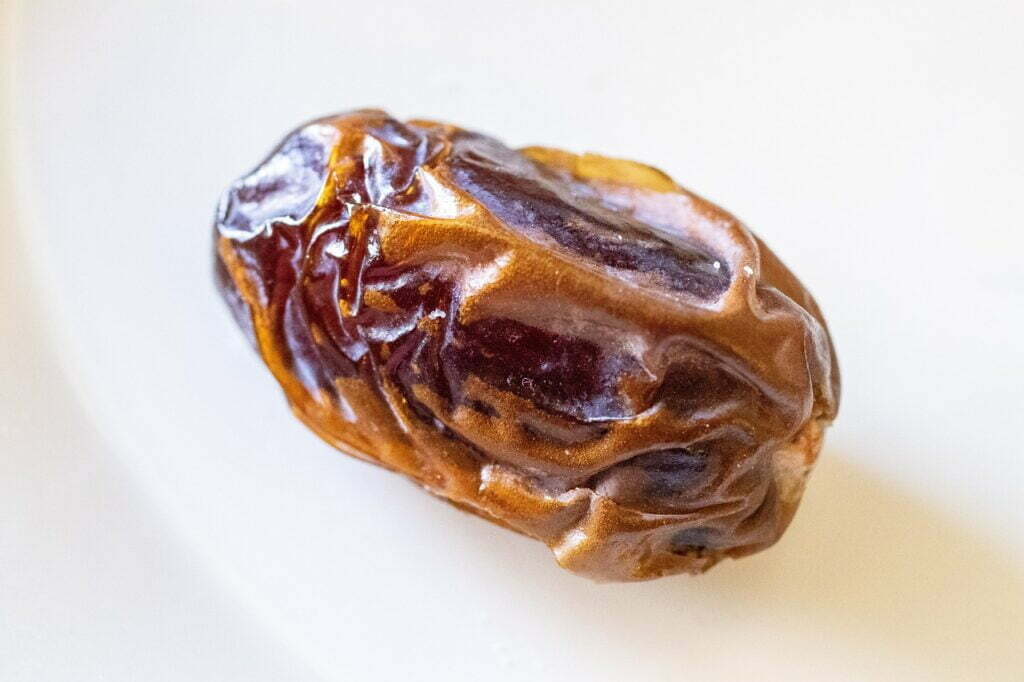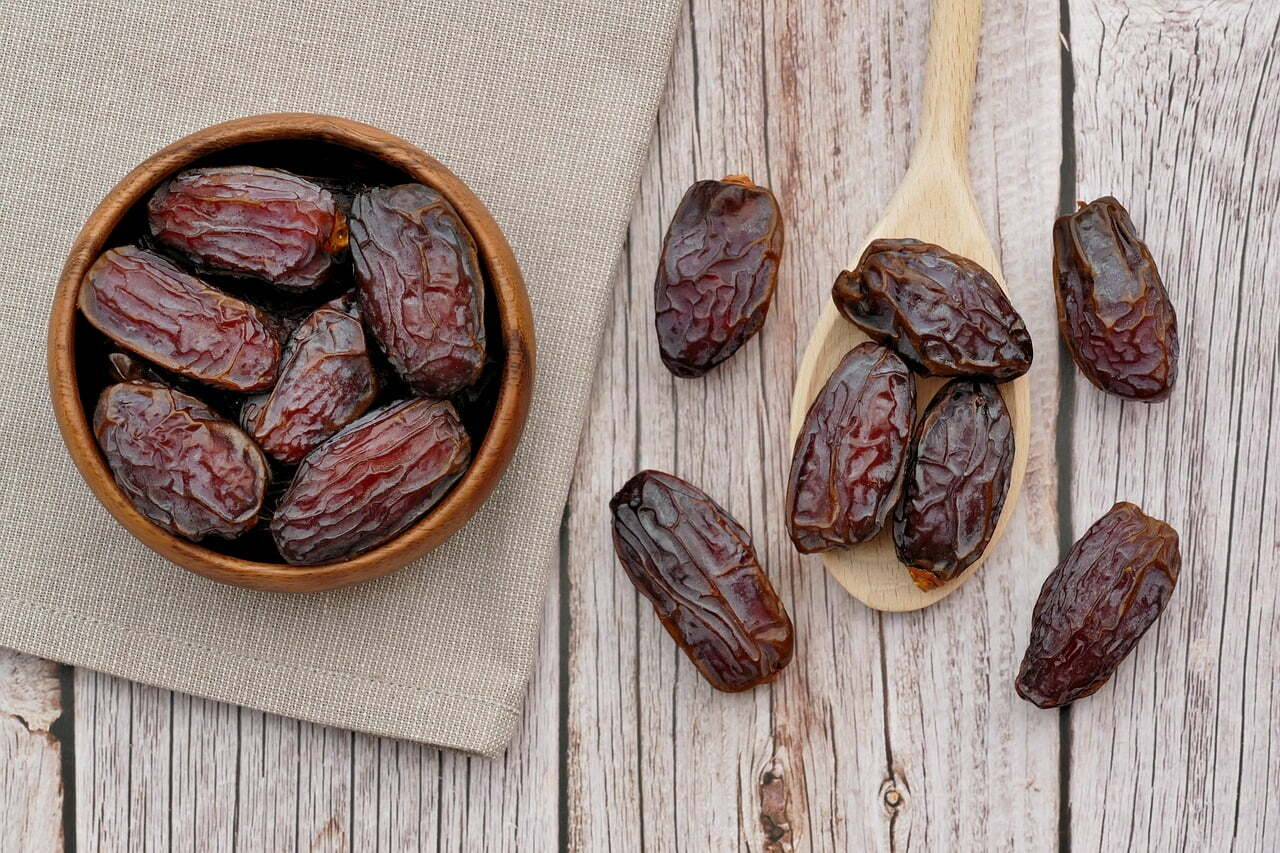Introduction: Dates are one of the oldest cultivated fruits in the world, grown for thousands of years in the Middle East and North Africa. They are often referred to as the “fruit of the desert” due to their ability to thrive in hot and arid conditions. In recent years, dates have gained popularity as a healthy and nutritious snack food. In this article, we will explore the dates health benefits and why they are such a valuable addition to a healthy diet.
Overview of Dates as a Fruit
Dates are the fruit of the date palm tree, which grows in tropical and subtropical regions around the world. They are typically oblong in shape, with a chewy texture and a sweet flavor. Dates are a good source of fiber, vitamins, and minerals, including potassium, magnesium, and calcium. They are also low in fat and contain no cholesterol.

Brief History of Dates as a Staple Food for Centuries
Dates have been a staple food in the Middle East and North Africa for centuries, with some records showing that they were being cultivated as far back as 4000 BCE. They were often used as a source of sustenance during long desert journeys, as they provide a quick source of energy and hydration. Dates were also used in traditional medicine to treat a variety of ailments, including respiratory problems and digestive issues.
Purpose of the Article
The purpose of this article is to provide a comprehensive guide to the health benefits of dates. We will explore the various nutrients found in dates, as well as the potential health benefits they offer. Additionally, we will provide tips on how to incorporate dates into your diet and some delicious recipes to try.
Nutritional Benefits of Dates
Dates are packed with nutrients that are essential for good health. Here are some of the key nutrients found in dates:

Fiber
Dates are an excellent source of dietary fiber, with one serving containing approximately 3 grams of fiber. Fiber is essential for digestive health, as it helps to keep the digestive system running smoothly and can help prevent constipation.
Vitamins and Minerals
- Dates are also a good source of vitamins and minerals, including:
- Potassium: Dates are high in potassium, which is essential for regulating blood pressure and maintaining healthy heart function.
- Magnesium: Magnesium is important for bone health and can help to reduce inflammation in the body.
- Calcium: Calcium is essential for strong bones and teeth.
- Vitamin B6: Vitamin B6 is important for brain health and can help to reduce the risk of depression.
Antioxidants
Dates are rich in antioxidants, which can help to protect the body against damage from free radicals. Free radicals are unstable molecules that can damage cells and contribute to the development of chronic diseases, such as cancer and heart disease.
Dates Health Benefits
In addition to their nutritional benefits, dates also offer a range of potential health benefits. Here are some of the most notable:
Improved Digestive Health
The high fiber content of dates can help to promote digestive health and prevent constipation. Additionally, dates contain natural sugars that can help to stimulate the digestive system and promote the growth of healthy gut bacteria.
Reduced Risk of Chronic Diseases
The antioxidants found in dates can help to protect the body against damage from free radicals, which can contribute to the development of chronic diseases such as cancer and heart disease. Additionally, the high fiber content of dates has been linked to a reduced risk of colon cancer.
Improved Heart Health
Dates are a good source of potassium, which is essential for regulating blood pressure and maintaining healthy heart function. Some studies have also suggested that consuming dates can help to reduce levels of LDL (bad) cholesterol in the body.
Increased Energy
Dates are a rich source of natural sugars, which can provide a quick source of energy. They are also a good source of complex carbohydrates, which can provide sustained energy over a longer period of time. This makes dates an excellent snack choice for athletes or anyone in need of a quick energy boost. Additionally, dates are low on the glycemic index, which means they can help to regulate blood sugar levels and prevent spikes and crashes in energy levels.
How to Incorporate Dates into Your Diet
- Dates can be eaten as a snack, added to smoothies, or used as a natural sweetener in recipes. Here are some ways you can incorporate dates into your diet:
- Add chopped dates to oatmeal or yogurt for a sweet and nutritious breakfast
- Make a date smoothie by blending dates, almond milk, and ice
- Use dates as a natural sweetener in baked goods like muffins and cookies
Potential Side Effects of Dates
- High in natural sugars and may not be suitable for those with diabetes
- High in calories and may contribute to weight gain if eaten in excess
- Incorporating dates into your diet is easy and delicious. They can be enjoyed as a snack on their own, or added to smoothies for an extra boost of nutrition. Dates can also be used as a natural sweetener in recipes such as energy bars, baked goods, and sauces.
- While dates offer a wide range of health benefits, it is important to be mindful of their high sugar and calorie content. Due to their high natural sugar content, dates may not be suitable for those with diabetes or other blood sugar issues. Additionally, consuming too many dates may contribute to weight gain if eaten in excess. It is important to enjoy dates in moderation as part of a balanced diet.
- Overall, dates are a delicious and nutritious fruit that can offer a wide range of health benefits when incorporated into a healthy and balanced diet. They can be enjoyed in a variety of ways and offer a natural and healthy alternative to traditional sweeteners. However, it is important to be mindful of their high sugar and calorie content and enjoy them in moderation.
Conclusion
- Recap of the health benefits of dates
- Encouragement to incorporate dates into one’s diet for a nutritious and delicious snack
- In conclusion, dates are an incredibly nutritious and delicious fruit that offer a wide range of health benefits. They are rich in antioxidants, promote digestion, boost energy levels, and aid in brain health. Additionally, they are a great source of vitamins and minerals, including potassium, magnesium, and calcium.
- Incorporating dates into your diet is easy and can be done in a variety of ways, such as eating them as a snack, adding them to smoothies, or using them as a natural sweetener in recipes. While they are high in natural sugars and calories, they can still be enjoyed in moderation as part of a healthy and balanced diet.
- In summary, dates are a healthy and tasty snack option that offer a wide range of benefits for your overall health and wellbeing. So why not incorporate them into your diet today and enjoy all the benefits they have to offer!

2 thoughts on “Dates Health Benefits: A Comprehensive Guide For better health”